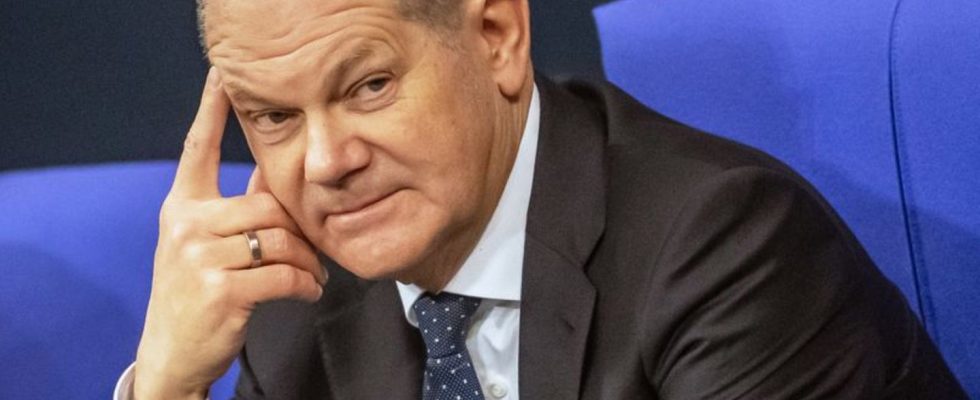Household settlement
Scholz: “Very low” additional burdens for citizens
Chancellor Olaf Scholz in the Bundestag. photo
© Michael Kappeler/dpa
The traffic light partners found a compromise during budget discussions. Chancellor Scholz defends the agreement – even against opposition leader Merz.
After the coalition agreement in the budget dispute, Chancellor Olaf Scholz (SPD) defended the additional burdens on citizens, for example in terms of electricity, gas and gasoline prices. “We have very different calculations. And when it comes to gasoline prices, for example, there are very small additional burdens,” said Scholz on the ARD program “Show Color.” He emphasized that at the same time the tax relief of 15 billion euros decided by the traffic light coalition remained in place. “It stays with them. And that affects small and medium incomes.”
After days of negotiations, Scholz agreed on a compromise on the 2024 federal budget with his Finance Minister Christian Lindner (FDP) and Vice Chancellor Robert Habeck (Greens) on Wednesday night. Among other things, the plan is to increase the CO2 price more strongly, which will have an impact on gasoline and gas prices. The cancellation of the subsidy for network fees is likely to lead to higher electricity prices.
“Failed quirk gesture”
Scholz rejected CDU leader Friedrich Merz’s request to ask the Bundestag for a vote of confidence. “There is no reason to do that at the moment,” said Scholz. The federal government has a stable majority and passes its laws. “Perhaps Mr. Merz would like it to be different. And that’s why he whistles loudly in the forest. But to be honest: That’s actually more – how should I put it – a somewhat unsuccessful blundering gesture.”
Merz called on Scholz in the Bundestag on Wednesday to put the entire legislative package from the federal-state agreement on migration policy to a vote in the Bundestag in January and to link it to the vote of confidence. In doing so, Scholz would connect his political fate with this factual question. The traffic light coalition made up of the SPD, Greens and FDP had previously postponed the adoption of two laws on migration policy until January because they could not yet agree on all the details.

